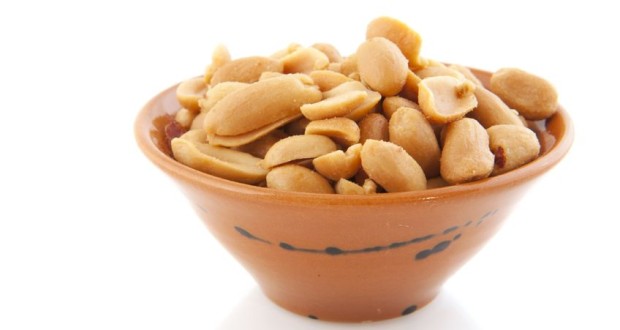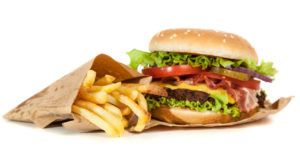Expecting parents certainly have a lot on their plate; from preparing the baby’s bedroom to buying enough clothes for their child, bringing a child into the world exacts a large amount of time and effort from both Mom and Dad. Adding to this list of concerns is the possible development of food allergies, which can linger for years if they appear during a child’s infancy. Further complicating things is that the guidelines for preventing food allergies in infants has changed dramatically in recent years, no doubt frustrating and confusing many parents-to-be. Though the link between food allergies and infant diets will continued to be studied, the latest research on this topic could prove especially beneficial to parents and children alike.
How Food Allergies Develop
Adverse reactions to food are very similar other types of allergic reactions, such as those involving pollen and ragweed. In the case of food allergies, the immune system mistakenly believes that certain foods pose a risk to the body’s health. In response to this perceived threat, the body produces antibodies specifically design to counter these “dangerous” foods. In turn, these new antibodies then call upon the body’s mast cells to release certain chemicals into the bloodstream.
It is these chemicals that give allergies there deservedly poor reputation. One of these substances is histamine, which can be blamed for many of the hallmark symptoms of allergies, including runny nose, watery eyes, sneezing, and itchy and red skin blemishes (frequently called hives). As if these problems weren’t troubling enough, food allergies can also wreak havoc with the digestive system, causing nausea, diarrhea, cramping and vomiting.
Once food allergies have developed, they are often not in a rush to vacate the body. Some allergies are more persistent than others; 32 percent of children with egg allergies, for instance, are still allergic to eggs at the age of 16. In contrast, only about 20 percent of infants who develop milk allergies still have adverse reactions to milk at age 16. Peanut allergies are one of the most stubborn food allergies, as only 20 percent of children with this allergy eventually lose it with age.
Changing Food Guidelines for Children
Until recently, doctors urged parents to hold off on introducing certain foods into their children’s diets. A report issued in the year 2000 by the American Academy of Pediatrics argued that children should not have milk before age 1 and eggs before the age of 2. The same group also claimed that infant children could develop allergies to shellfish, peanuts, fish and nuts by eating these foods before the age of 3.
This advice quickly turned out to not only be ineffective, but also counterproductive. The prevalence of food allergies in those under age 18 spiked by 18 percent from 1997 to 2007. According to the latest available research, withholding certain foods from a child’s diet may actually increase their risk of food allergies.
In early 2013, the American Academy of Asthma, Allergy, and Immunology (AAAAI) offered its own take on the matter, authoring an article in the Journal of Allergy & Clinical Immunology: In Practice. The AAAAI recommended that parents adopt a radically different approach to feeding their children, stressing that potential food allergens should be added to infants’ diets between the ages of 4 and 6 months. The logic behind this 180 degree turn does appear to be based on solid reasoning; if the body is not introduced to certain foods at an early enough age, it will treat them as hostile invaders when they finally do appear inside the digestive system. The notable increase in childhood allergies over the last decade (which occurred while doctors advised parents to follow the exact opposite strategy) lends credence to this new theory.
What to Eat While Pregnant
It should not come as a surprise that the diets of pregnant women have a major impact on their future children. For example, expecting mothers are frequently told to avoid caffeine and high-mercury fish in favor of whole grains and calcium-rich fare. One item that may warrant an especially large amount of attention should sound very familiar – apples.
Long praised for its healthy attributes (remember “an apple a day keeps the doctor away?”), this household staple has now been linked to a lower risk of respiratory problems in young children. A recent comprehensive study, conducted by Scottish and Dutch researchers and consisting of more than 2,000 pregnant women, found that the offspring of women who ate more than four apples per week were 53% less likely to develop asthma. Furthermore, these same children had a 37% lesser chance of experiencing wheezing problems during childhood.
In addition to feeding nuts to their children at a younger age, new evidence also supports the idea that women should also eat tree nuts while pregnant. Until recently, women were discouraged from consuming nuts during their childbearing months, as it was feared that doing so could spur food allergies in infant children. A 2012 Danish study cast much doubt on this hypothesis, and in fact reached the exact opposite conclusion – that eating nuts during pregnancy reduces the child’s odds of contracting both asthma and peanut allergies. This particular study featured an impressive sampling size, following nearly 62,000 mothers who gave birth between the years 1996 and 2002.
Food allergies remain an area of great concern to parents, and medical researchers will doubtlessly continue to examine the issue in the future. If the latest round of evidence is indeed correct, the conventional wisdom regarding children and food allergies is in dire need of revision.
 Natural Knowledge 24/7 Educate yourself with nutrition, health and fitness knowledge.
Natural Knowledge 24/7 Educate yourself with nutrition, health and fitness knowledge.






